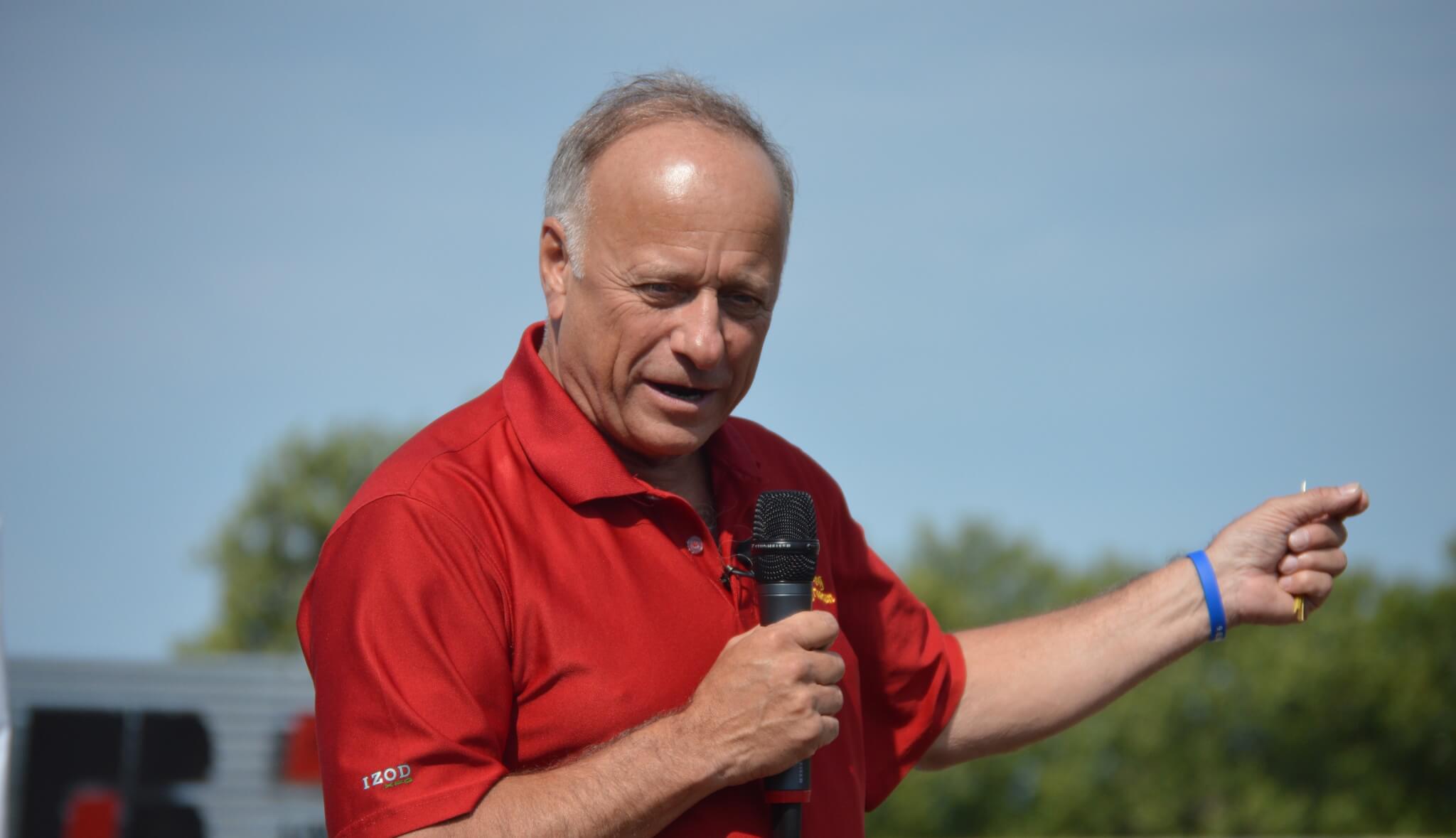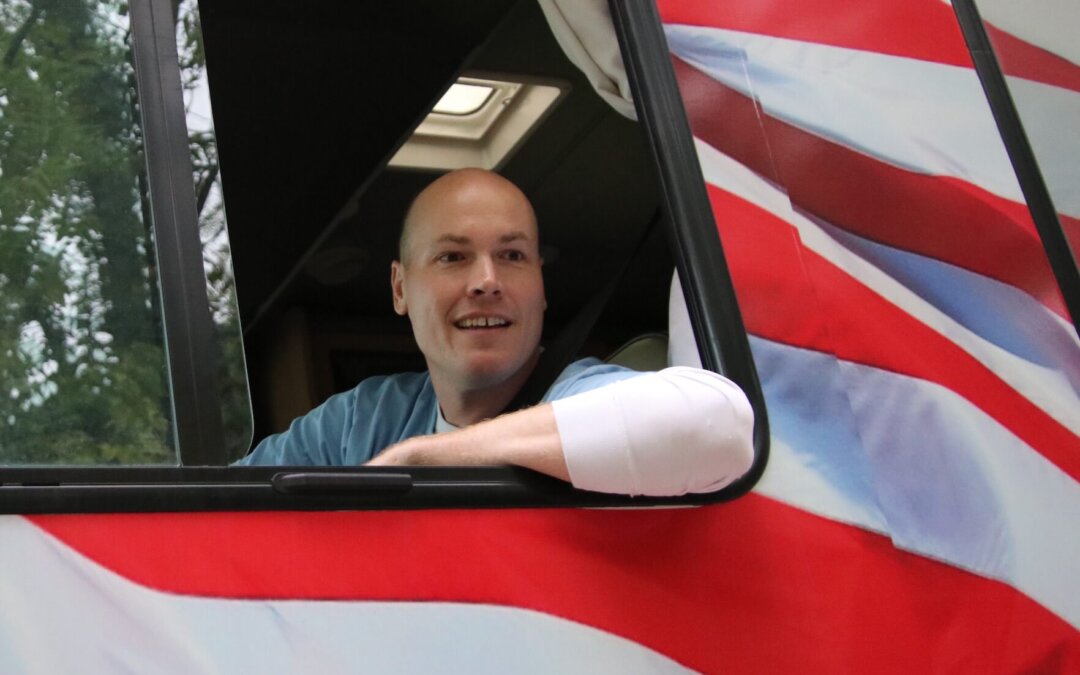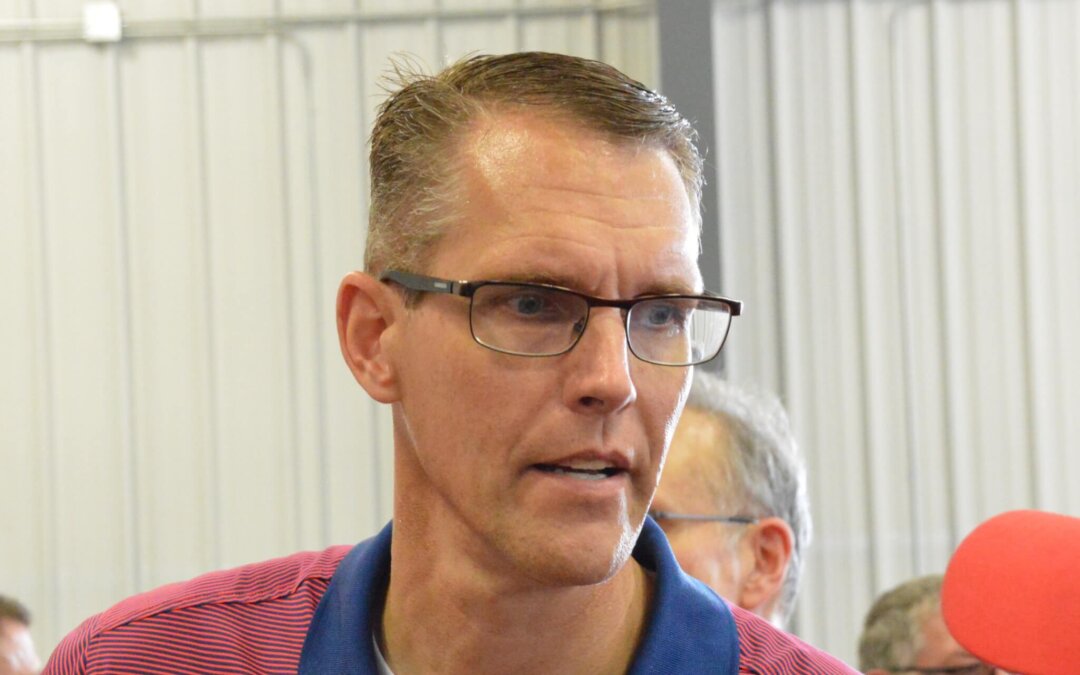
The Supreme Court of the United States is expected to decide tomorrow whether the Trump Administration can add a question to the census asking about respondents’ citizenship, a decision that will impact some communities in Iowa.
If the question is added to the 2020 census, households and communities with undocumented immigrants will face a hard decision. Answer honestly or decline the opportunity to be counted as part of a city’s population.
In Iowa, most new immigrants are concentrated in the western part of the state where meatpacking businesses like Tyson Foods and Seaboard Triumph Foods operate and employ both documented and undocumented workers.
According to data from the Pew Research Center, Iowa’s population of undocumented immigrants for 2017 was around 50,000 people. This number has been slowly rising since the 1990s, but it slowed to a near-crawl in the mid-2000s.
Rep. Steve King has represented the Northwestern area of Iowa for nearly two decades, and he has long supported a question about citizenship being added to the census.
In a statement posted to his official website, King said, “Census data is used for a variety of reasons, including the apportionment of Congressional seats. Sanctuary states like California flaunt federal immigration law to give aid and comfort to large populations of illegal aliens, and those states are unjustly rewarded with extra Congressional representation as a byproduct of doing so.”
In February 2018, King sent a letter to the Department of Commerce calling for the addition of a citizenship question to the census. The letter was cosigned by several fellow House members.
However, for Iowa’s congressional districts, it would likely be King’s district that would be impacted the most by an undercount of immigrants.
Mark Prosser, the police chief of Storm Lake, said having an undercount on the census means a city has less revenue, grant money and, down the road, money for important services.
“We know that a substantial number of our community hasn’t responded to the census in the past,” he said. “That’s why we’re hoping to get a more accurate count in 2020.”
Prosser said when money is distributed based on an official number of people, but the actual population is higher, the money automatically isn’t enough to cover a community’s needs.
Having an accurate census number would immediately make a difference in the support for necessary services, he said.
He mentioned the Iowa road use tax that gets distributed to communities for anything road-related like street departments and snow removal.
[inline-ad id=”0″]
Many immigrants call Northwest Iowa home, and Prosser said he knows that the number includes people with and without documentation. He also said he knows many of those people don’t understand the confidentiality of the census, and they come from places where government counts are threatening.
Prosser said a question asking about citizenship wouldn’t help because it’s hard enough to get people to participate.
The concern about asking for people’s citizenship status is that those who are undocumented, or have family or friends who are undocumented, will be too scared of being tracked by immigration authorities to respond and therefore won’t be counted.
“I think that’s a rational, understandable fear,” Prosser said.
But there are other consequences of people being afraid to call attention to themselves, like when it comes to reporting crimes.
“We are always working from a public safety standpoint,” Prosser said. “When we have people worried … they fade into the shadows.”
Some say that’s the point of the proposed addition: to skew population numbers in communities that tend to vote for Democrats. Lower populations would result in less funding, research and, possibly change a state’s number of House members in Congress. It could also allow districts to be drawn in Republicans’ favor, though possibly not in Iowa.
That issue of representation is King’s main concern.
“Citizens should not have their representation in Congress diluted due to the concentrated presence of illegal aliens in lawless cities and states,” King said in the statement on his website. “Americans should count the citizenship question as a partial win, while demanding more action to prevent illegal aliens from determining Congressional seats.”
Yesterday, the US Court of Appeals for the Fourth District sent the case back to a Maryland judge who wants to reopen the question of whether the Trump Administration had discriminatory intent in proposing this question. However, most expect the Supreme Court to hand down its decision on Thursday.
by Nikoel Hytrek
Posted 6/26/19
Politics

It’s official: Your boss has to give you time off to recover from childbirth or get an abortion
Originally published by The 19th In what could be a groundbreaking shift in American workplaces, most employees across the country will now have...

Trump says he’s pro-worker. His record says otherwise.
During his time on the campaign trail, Donald Trump has sought to refashion his record and image as being a pro-worker candidate—one that wants to...
Local News

No more Kum & Go? New owner Maverik of Utah retiring famous brand
Will Kum & Go have come and gone by next year? One new report claims that's the plan by the store's new owners. The Iowa-based convenience store...

Here’s a recap of the biggest headlines Iowa celebs made In 2023
For these famous Iowans, 2023 was a year of controversy, career highlights, and full-circle moments. Here’s how 2023 went for the following Iowans:...




